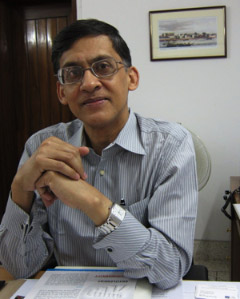25 October 2015, by Manzoor Hasan.

In November 2015 we will meet in St. Petersburg for the 6th UNCAC Conference of States Parties (COSP). This is a timely opportunity to celebrate the UNCAC’s many achievements since 2003. In particular, the UNCAC Review Mechanism has succeeded beyond expectations, with an encouragingly high level of state and civil society collaboration in the country reviews.
The 6th COSP also provides an opportunity for consolidation and evaluation. We have a decade to learn from and we need to use our experience to build on and improve the anti-corruption structures we have helped to create. The St Petersburg COSP will be significant for a number of reasons, but most notably it provides an opportunity to examine the experience of the first cycle of reviews of the Review Mechanism (the great accomplishment of 2009) in preparation for the second cycle due to begin in 2016.
The first cycle produced impressively detailed and comprehensive country reports with useful findings and recommendations, judging by the nearly 50 full reports that we can access so far and the 107 executive summaries. Follow-up on these reports is crucial; otherwise great effort will have been wasted.
COSP Secretary Dimitri Vlassis rightly noted in a recent interview with the UNCAC Coalition that:
One of the most impressive aspects of the IRM [Implementation Review Mechanism], which is difficult to capture in formal documents and reports, is the peer learning aspect. We have often seen how reviewers and officials of States under review freely exchange experiences and ideas and even continue to do so well past the conclusion of the country review.
We agree with Mr Vlassis, and strongly feel that such learning could be better utilised through greater openness.
The second cycle should further exploit opportunities to advance the Mechanism’s good work. An examination of its Terms of Reference is in order to create arrangements in country reviews more in line with international commitments on transparency and participation. This is relevant in light of the level of comfort that a wide spectrum of countries have shown with respect to these obligations so far. In the second cycle countries should be presumed to be following an open, inclusive approach and encouraged to follow best practice examples of this. They could also indicate their decision to opt out. The approach adopted by each country should be reported in appropriate detail in the executive summaries and full reports of the country reviews. This will enable better exchange of experiences and mutual learning.
A commitment to transparency and participation should also guide the approach to meetings of the Mechanism’s Implementation Review Group, as well as meetings of other UNCAC subsidiary bodies, such as the working groups. Those meetings should be presumed to be open, but upon a proposal of a group of countries, the body could consider whether there were grounds for closing the meeting and a decision could be made to that effect.
There are reasons for optimism in St Petersburg. For the first time the COSP agenda will include an item on the relationship between the COSP and civil society, inter-governmental organisations and regional organisations. This will provide a welcome opportunity for an open exchange of views.
The UNCAC Coalition urges the COSP to be forthright, constructive and forward-looking in its discussions and resolutions, with due respect paid to international commitments on transparency and participation. Such an approach can only bolster the Sustainable Development Goals (SDGs) newly adopted by the world community. I draw attention to the critical Goal 16, which calls for effective, accountable and inclusive institutions at all levels. The related targets include: substantial reduction of corruption and bribery (16.5); transparent institutions at all levels (16.6); responsive, inclusive, participatory and representative decision-making at all levels (16.7) and public access to information (16.10). The COSP’s resolutions and the design of future UNCAC processes will be a test of commitment to Goal 16 and its targets.
To advance on this issue, the UNCAC Coalition has launched a Transparency Pledge. We urge States Parties to publicly demonstrate, in COSP discussions and beyond, their unequivocal support for the Pledge and the principles of transparency and participation.
What we know now – more than ever – is that transparency and participation of civil society is essential in ensuring that UNCAC processes are accountable and effective at combatting corruption. The UNCAC Coalition stands ready to play its part and calls on the COSP to do the same.
We look forward to the hospitality of the Government of Russia and UNODC in St Petersburg at the upcoming 6th session of the UNCAC COSP and to discussing proposals and ideas with country delegations and other participants.



